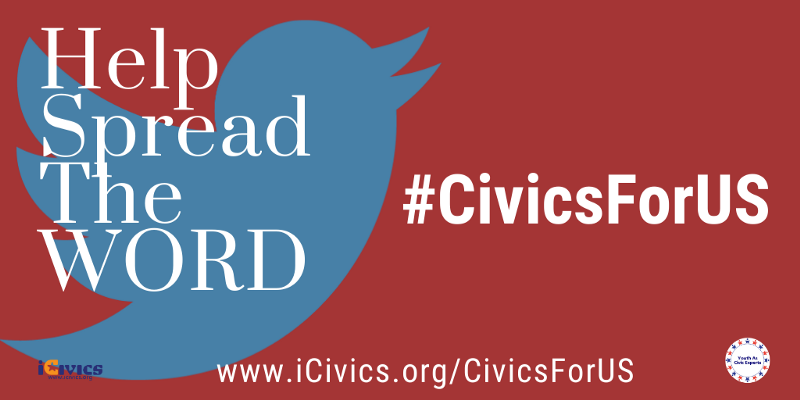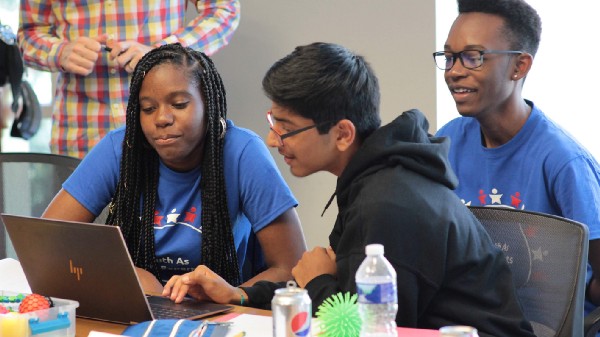
On March 2, the iCivics Youth As Civic Experts Network — a nationwide network of civically engaged and community-oriented students advocating for equitable civic education — launched #CivicsForUS, a social media campaign designed to start a conversation among young people about how civic action and civic education can be more relevant and equitable for all students, no matter their backgrounds.
Students from 9 states and Puerto Rico, embarked on a virtual social listening tour between December and February to understand how peers in their schools and communities experience civic education. The project resulted in over 900 responses to four questions on equity in civic education:
- How can we improve civic education so that all students can use what they learn in class in real life?
- What does equity in civic education mean to you?
- What do students in your community need to know in order to be informed and engaged citizens?
- Why do you need to learn about politics, government, civil rights and social justice issues?
Students then took the responses from their peers to develop and launch a national social media campaign between March and June. The campaign was designed to center student voices as the answer to the question that plagues the field of civics: How do we get students to care about civics?
The answers that came in showed that students already care about civic education and civic engagement. Students are not adequately prepared with the tools or the opportunities to fully explore what civics means to THEM.
What did our equity fellows and youth network students take from this program and campaign? Many of the students who participated in our program saw this opportunity as a catalyst for starting clubs and affinity groups to address equity in civics at their own schools. Students also expressed deep appreciation for the opportunity to not only engage students in their own communities but also the chance to discuss important issues with students from across the country. Students also learned that civic education is a vaguely understood content area, where many students are unaware of what civic education actually is. “I think this reflects a larger deficiency in our education system when it comes to teaching students about what it means to be a contributing citizen,” says Rachel Roncka, a sophomore from Boston Massachusetts. It looks like “civics” needs a rebrand or marketing campaign.
 The greatest benefit expressed by our students, was the ability to center student voices in a discussion about students and their future. “Not only was I part of it but I helped the students in my school who didn’t know they had a voice to speak up”, said Paris Mathews, from Las Vegas, Nevada. Nicolle Badillo-Velez, a junior from Puerto Rico, expressed that this program gave participants “a platform to speak up about what we feel is inequitable but also helped challenge us in seeing how we can fix it”.
The greatest benefit expressed by our students, was the ability to center student voices in a discussion about students and their future. “Not only was I part of it but I helped the students in my school who didn’t know they had a voice to speak up”, said Paris Mathews, from Las Vegas, Nevada. Nicolle Badillo-Velez, a junior from Puerto Rico, expressed that this program gave participants “a platform to speak up about what we feel is inequitable but also helped challenge us in seeing how we can fix it”.
“I’m so proud of these students. They put in a lot of effort this year to learn more about equitable civic education. I hope that those in the field begin to pay closer attention to the work that not only our students did, but the work being done by other student organizations to promote equity and civic engagement in youth”, says Amber Coleman-Mortley iCivics Director of Social Engagement and youth program director.
Read more about the Youth Fellowship and Network:
#CivicsForUS — Youth Fellows Reflect on the Current Moment and How We Move Forward
#CivicsForUS — Student Experts Discuss Equitable Civics And Student Voice In Their Schools
12 Students Attend Weekend Youth Fellowship in Washington, DC
Pass the Mic: Students Discuss Equity in Civic Education — SXSW EDU


 See All
See All